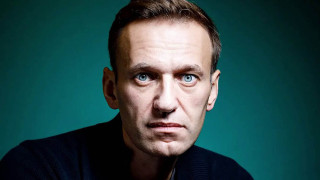Independent Tests Confirm Poisoning Allegations
Yulia Navalnaya, the widow of Russian opposition leader Alexei Navalny, announced on Wednesday that independent laboratory tests conducted in two separate countries have confirmed that her husband was poisoned while incarcerated in an Arctic penal colony. Navalny, a fierce critic of the Kremlin, died in February 2024 under circumstances that have drawn global scrutiny.
In a video statement shared on X, Navalnaya revealed that Navalny’s supporters were able to “securely obtain and transfer biological samples abroad” after his death. According to her, laboratories in two different nations analyzed the samples independently and both reached the same conclusion: Alexei Navalny was poisoned.
While Navalnaya did not reveal the names of the laboratories or the exact toxic substance identified, she urged the institutions to publish their findings publicly. She called the results “an inconvenient truth” and implied that the details were being withheld due to political pressure.
Shocking Prison Testimonies Surface

Navalnaya’s announcement was accompanied by witness accounts from five employees of the IK-3 penal colony in Kharp, also known as “Polar Wolf,” where Navalny was serving his sentence. According to these testimonies, Navalny first reported severe leg pain on February 3 and was taken to the prison medical unit. Staff allegedly only checked his blood pressure and temperature before sending him back to solitary confinement.
On February 16, after a short outdoor walk, Navalny reportedly complained of feeling unwell. Guards stated that he collapsed in his cell, screaming in pain and vomiting. Witnesses described him suffering convulsions, struggling to breathe, and coughing violently. Despite his condition, no immediate medical assistance was given.
An ambulance was reportedly called over 40 minutes after the initial complaints. Navalny was pronounced dead at 2:23 p.m. local time.
Missing Security Footage Raises Questions
Adding to suspicions, Navalnaya highlighted the disappearance of surveillance footage from the day of her husband’s death. The IK-3 facility reportedly has 63 security cameras monitoring its cell blocks, but Navalnaya claimed that no video footage exists from the crucial hours surrounding Navalny’s collapse.
She also shared what she said were photographs from Navalny’s cell taken that day, including one image showing vomit on the floor — further evidence, she argues, that contradicts official explanations of a “natural death.”
Kremlin Response and Global Reactions
Kremlin spokesperson Dmitry Peskov said Wednesday that he was “unaware” of Navalnaya’s statements. Russian authorities have maintained that Navalny died from a “combination of illnesses” and have denied any involvement in his death.
Meanwhile, U.S. intelligence agencies have reportedly assessed that President Vladimir Putin likely did not personally order Navalny’s killing. However, American officials have emphasized that this assessment does not absolve him of ultimate responsibility, as the Russian state was responsible for Navalny’s imprisonment and safety.
Growing International Pressure
Navalny’s death has already sparked widespread condemnation from Western nations and human rights organizations, many of which have called for a thorough, transparent investigation. Navalnaya’s latest revelation is expected to intensify demands for accountability and further strain relations between Moscow and the West.
Diplomatic analysts suggest that the confirmation of poisoning could lead to renewed sanctions and increased political pressure on the Kremlin. International watchdogs and human rights groups are urging full disclosure of the lab results to ensure justice for Navalny and to prevent future abuses.
Sources: BBC

